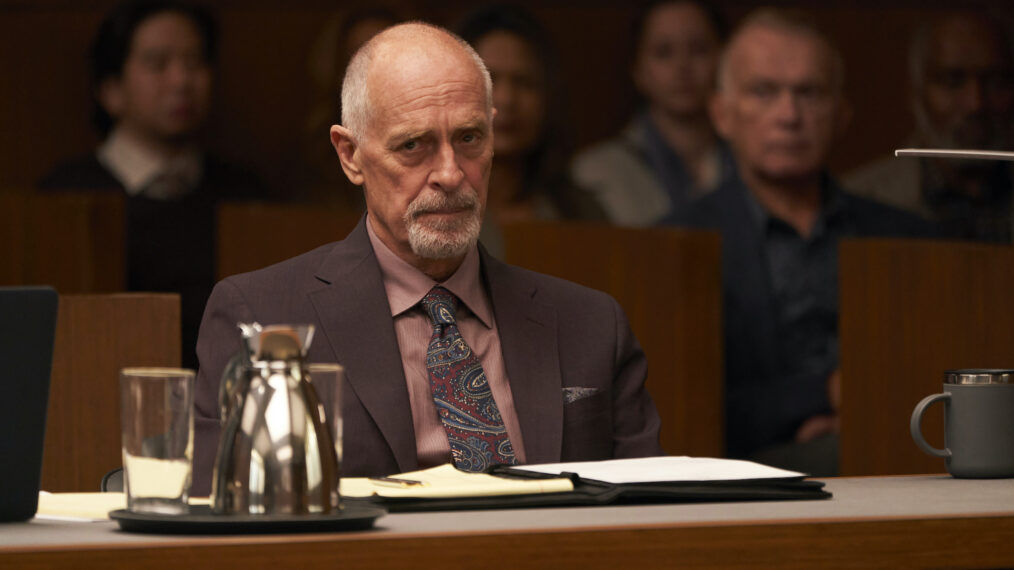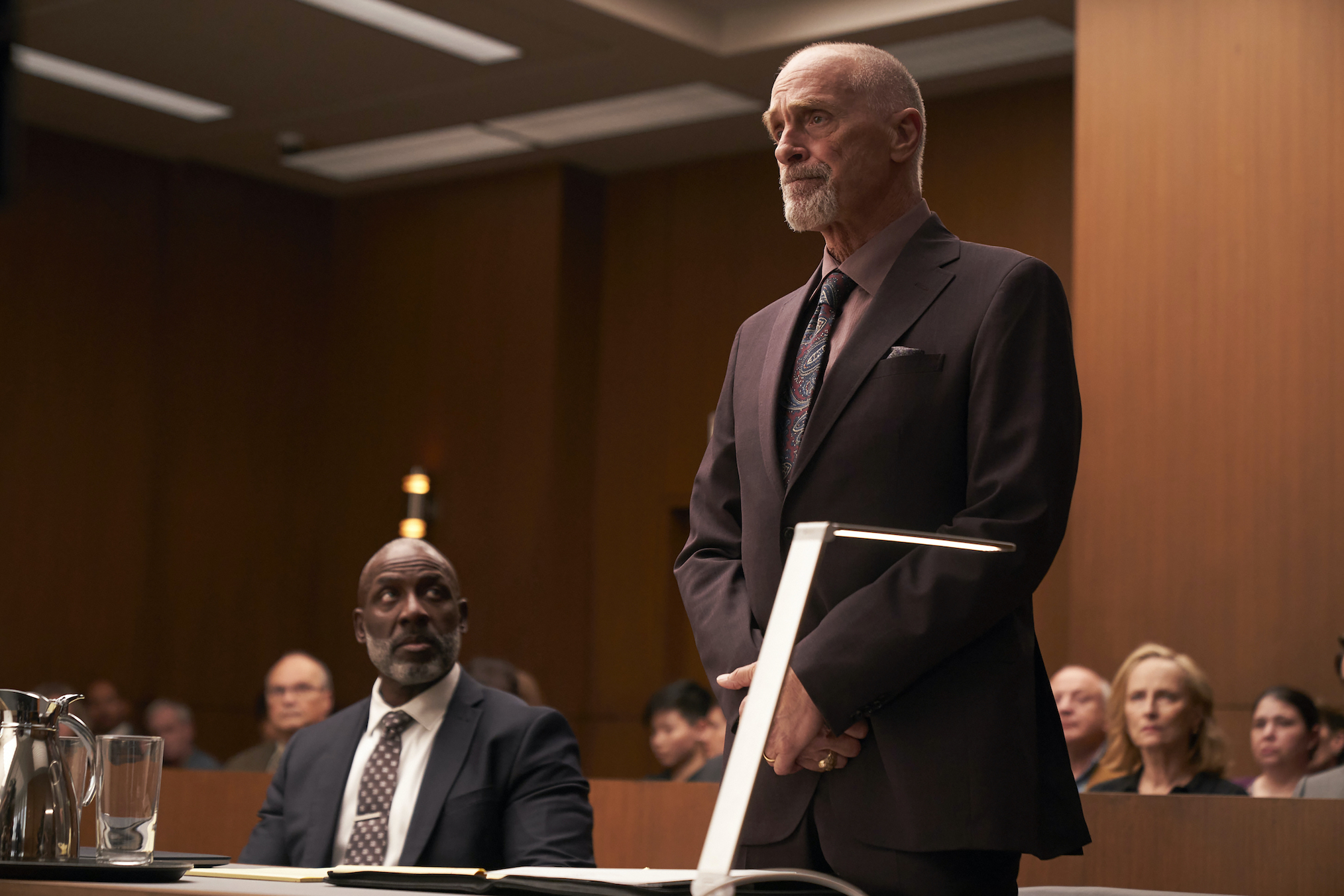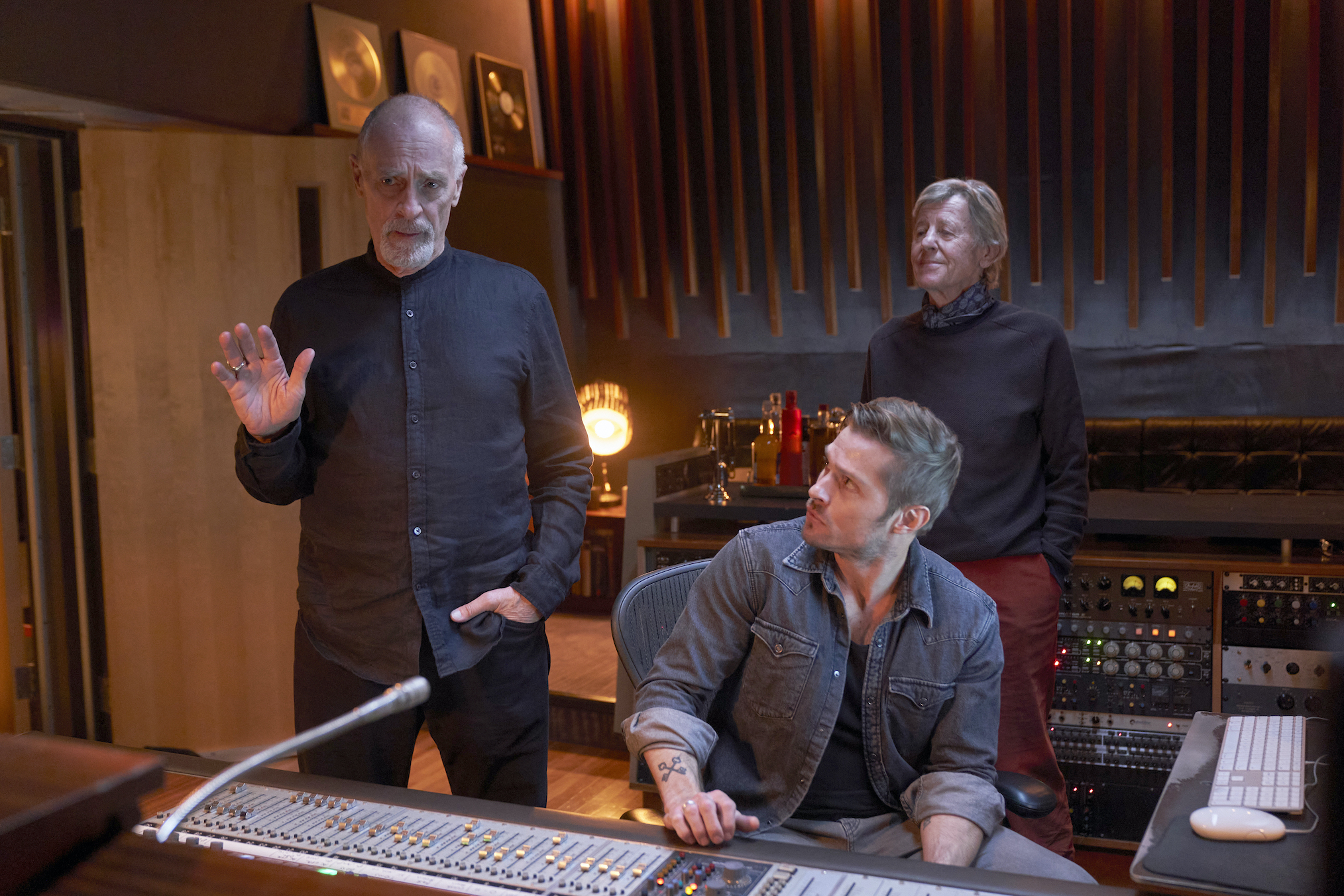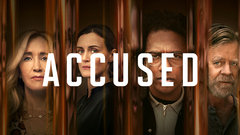‘Accused’: Keith Carradine Delves Into Rock Star Billy’s Torment in Season Finale

Preview
“An aging rockstar attempts to cement his musical legacy while trying to prevent his troubled son from unraveling” in the season finale of the Fox crime drama anthology Accused.
To talk about “Billy’s Story” is Keith Carradine, who plays the titular character in the midst of having to choose between his career and family once and for all. Alongside the May 9 episode, the actor touches on his own career as a musician and the ongoing WGA writers’ strike.
What can you tease about Billy’s Story, and what about it attracted you to the role?
Well, the primary attraction was it allowed me to do some music again onscreen, which I haven’t had the chance to do in some time. I’ve continued to songwrite and I’ve had songs that have been used in different things. I think the last time I actually wrote a song and played it on camera was in my final episode on Madam Secretary, oddly enough for the ex-president. So it was an odd sort of way that that came about, but you know, music has always been a big part of my life. And so the opportunity to play a character who is a musician was very appealing to me. And then, of course, the nature of the story itself. And the issues with which it deals, you know, particularly drug addiction, substance abuse, the parent-child relationship, in terms of parents dealing with a child who has an addiction.
All of those things were very compelling reasons to do it. It’s just it’s, it’s very, it’s very rich material, it’s very challenging material. And it was, I thought, very well written. So all of those things appealed to me on all of those levels, and I was privileged to be able to take part in the production.
How much do you think Billy’s love for his own music legacy affected his entire family?
Well, that’s the age-old artists’ dilemma. The philosophy is that you need two things in life to be happy, you need to love your work, and you need to have love in your life. So to have someone, a partner whom you love, or a family that you love, but also to have work that you love. And then the balance between those two things, you know, how do you balance your creative process, your love of your work, which for a creative person, particularly for a musician, can be all-consuming. And how do you balance that with the demands of parenting, of the demands of a marriage, how do you balance those things? And I think one of the things that this story really effectively looks at is Billy’s struggle, particularly at this point in his life.
He’s late in his life, he’s had this remarkable career. He has a creative legacy that he wants to burnish and make sure that what is left after he’s gone is worthy. So at the same time that he’s struggling with that, and he’s also having to address these issues with his son. And the ideal is there’s nothing more important than to take care of your child and to see to your child’s needs. And one of the struggles that these two parents are going through is how to do that without completely sacrificing their own lives in the process. And I think that that’s a typical dilemma for any parent who’s struggling with an addicted child, it’s–it’s a hell, it’s a kind of hell to live in. And especially when you keep thinking that you’re going to fix it, that you’re going to resolve it, that you’re going to be able to help your child overcome their addiction, and then there’s a sense of failure when they don’t when they go back to using again, and it’s a cyclical thing, as anyone who’s had any experience with addiction, and those issues will probably attest.
So all of those elements are a part of this telling of this story. And obviously, Billy’s struggle with balancing between his own need to protect and look after his child and, at the same time, not allowing his child’s disease to destroy him completely, just to destroy Billy and the family completely. So as I said, it’s that age-old struggle, and I’m not sure anyone has come up with the perfect answer yet.

Fox
What emotions do you feel he has towards his son Leo (Evan Gamble)? It must be such a complicated, mixed bag of emotions.
Well, you see those things play out in the story. You see Billy have deep compassion and great care, and great love for his son. And then you see him lose patience and get angry. And all of those things are what happens, you know, and I just felt that it was a very honest telling of that story. And there’s such a mixture of a sense of regret about not being able to help your child and a sense of resignation, ultimately, at not having been able to help your child if, in fact, the child’s ultimate end of their issue is their failure to get clean. And when an addict goes back to using after not using, it can be really dangerous, and often deadly, And we hear these stories all the time about somebody who gets clean, and then they fall off the wagon just for one night, ‘oh what’s it gonna hurt?’ and that’s it, they’re gone. So it’s a terrifying thing for a parent. And as a parent myself, it was an interesting thing, too.
I haven’t been the parent of an addict, so I feel very fortunate in that regard. But just knowing what it is to love a child, to love your children, and to want them to be okay and have happy lives. It was a deep exploration from an acting point of view to spend the nine days that we spent telling this story filming it. It was challenging and, frankly, sometimes exhausting. But ultimately, I think that the telling of the story–I haven’t seen the finished cut yet–but I trust that between Howard Gordon’s production, and our director’s sure hand, I think it’s probably going to be a really good episode.
The show has a log line of “What would you do?” So what would you do in Billy’s situation? Would you let it play out the way it does?
I don’t know how to answer that! I mean, the only way I can address what we had to perform as actors was to consider myself to be that person at that time in those circumstances. And so the choices that he made, I, as an actor, subscribe to, that was true for that character. And honestly, I would like to think that I might have been able to have more control of the situation than these characters had in this circumstance. But that’s a fantasy. One never knows you know? And I trust that I will never be confronted with a choice like that in my own life that I have to.
What should viewers keep in mind about Billy while watching this episode?
Well, I think that they need to keep in mind that he’s an artist. He’s an he’s a musician, a songwriter, a singer, a performer.
And all of the rigors of having that life, that professional life, they’re demanding. It’s time on the road, time in the studio. And as I said earlier on, that process can be quite all-consuming. And there are those artists who become so completely consumed by the work itself that the rest of their life falls apart. And all they have is that process and that work, and that becomes, for lack of a better metaphor, the work becomes their mistress. That’s where they put all of their creative energy, all of their time, all of their love. And I think that when looking at Billy’s character, you can see that there have been elements of that in his life, and he and his wife, you know, it gets discussed on occasion, “Well, you know, I’ve been there for you when your time’s on the road” and blah, blah, blah. And that all felt very real to me.
I mean, my musical life hasn’t been that extensive. I mean, I put out two records in the ‘70s. I toured for both of those records. So I do know what that’s like, I played clubs all over the country, I toured with my band, and I know what that life is. I don’t know it on the level of a superstar. You know, I had one hit record; I’m a bonafide one-hit-wonder. So having had that experience, I was able to bring certain elements of that knowledge of what that is to the playing of Billy in this piece. But I can’t begin to understand what it would be like to be on doing that for your life, for your living, and to be on a superstar level.

Fox
What are you hoping viewers take away from the episode?
Well, I hope they’ll take away a sense of having been told a really good story, having been moved emotionally, and maybe having been made to think a little bit.
And I think that that’s one of the things that, you know, Howard and company have strived for in the producing of this series. The law is complicated, and circumstances can be very complicated surrounding legal issues, and decisions that get made legally, and judgments that are passed by our legal system. And there is a lot of complexity to it. And there can be a lot of nuance to it. And I think that this story addresses that brilliantly. And I think that people will come out of this story or without giving anything away, I think they’ll come out of it with a sense of, “Oh, my gosh. I wonder if that was right. I wonder if that judgment was right. I wonder if that was really just.” I think that to be left with an audience asking those questions of what they’ve seen, and perhaps of themselves in their own lives, I think that makes it a worthwhile thing to see and a worthwhile thing to have done.
This being the season finale, do you think the Writer’s strike will affect Season 2?
Well, I suppose that depends on how many scripts they have had completed before the writers walked out. I am in complete support of the Guild and of their decision for the work stoppage that they think is necessary to try and be treated fairly in our industry. And that’s all anyone’s asking for is fairness.
And it’s a complex world, and there are complex issues on both sides. But ultimately, I think that if everyone arrives at an agreement that everyone feels there is fairness to it, and that people can actually survive and make a living doing this. I don’t see any reason why that can’t be accomplished. The only reason that ever isn’t accomplished is because one side or the other is not reasonable. And I think ultimately reason will be achieved, I hope sooner rather than later.
In the meantime, you know, a show like Accused, yes, I would gladly come back if there was something for me to do that they didn’t feel was gonna, you know, make people go “wait a second. That’s Billy, what’s he doing here?” You know, it might have to be a few seasons down the road for people to, you know, be far enough removed from having seen me do this to accept me in a whole other role and a whole other character. But I would work with these people anytime. They’re just the best of the best.
And in terms of how the Writers Guild walkout is going to affect this show, in particular, you’ll probably have to ask Howard about that. I don’t know how many scripts they have banked that they’re prepared to go ahead and shoot. I don’t know how the Guild walkout would affect the shooting of a script that is completed because I know that during the course of shooting, oftentimes adjustments need to be made. And changes in dialogue adjustments and scenes and things like that. And that’s where the writers come in. So I don’t know how one does that without them. And I wouldn’t attempt to do that. When people talk about improv and things of that nature, I think that’s a great thing to do in a workshop. I’ve never been comfortable doing improv as an actor on camera. I like to be written for. And for that, I want good writing, and for that, we need good writers, and I count on them to give me stuff that makes me at least appear smarter than I know I am.
Accused, Tuesdays, 8/7c, Fox









